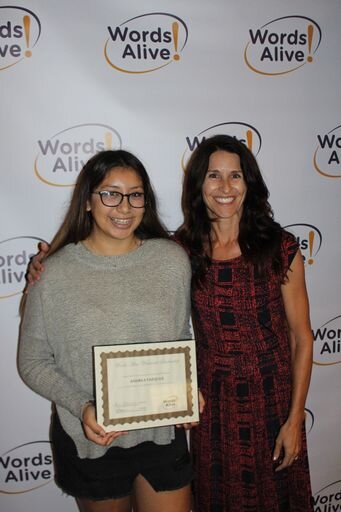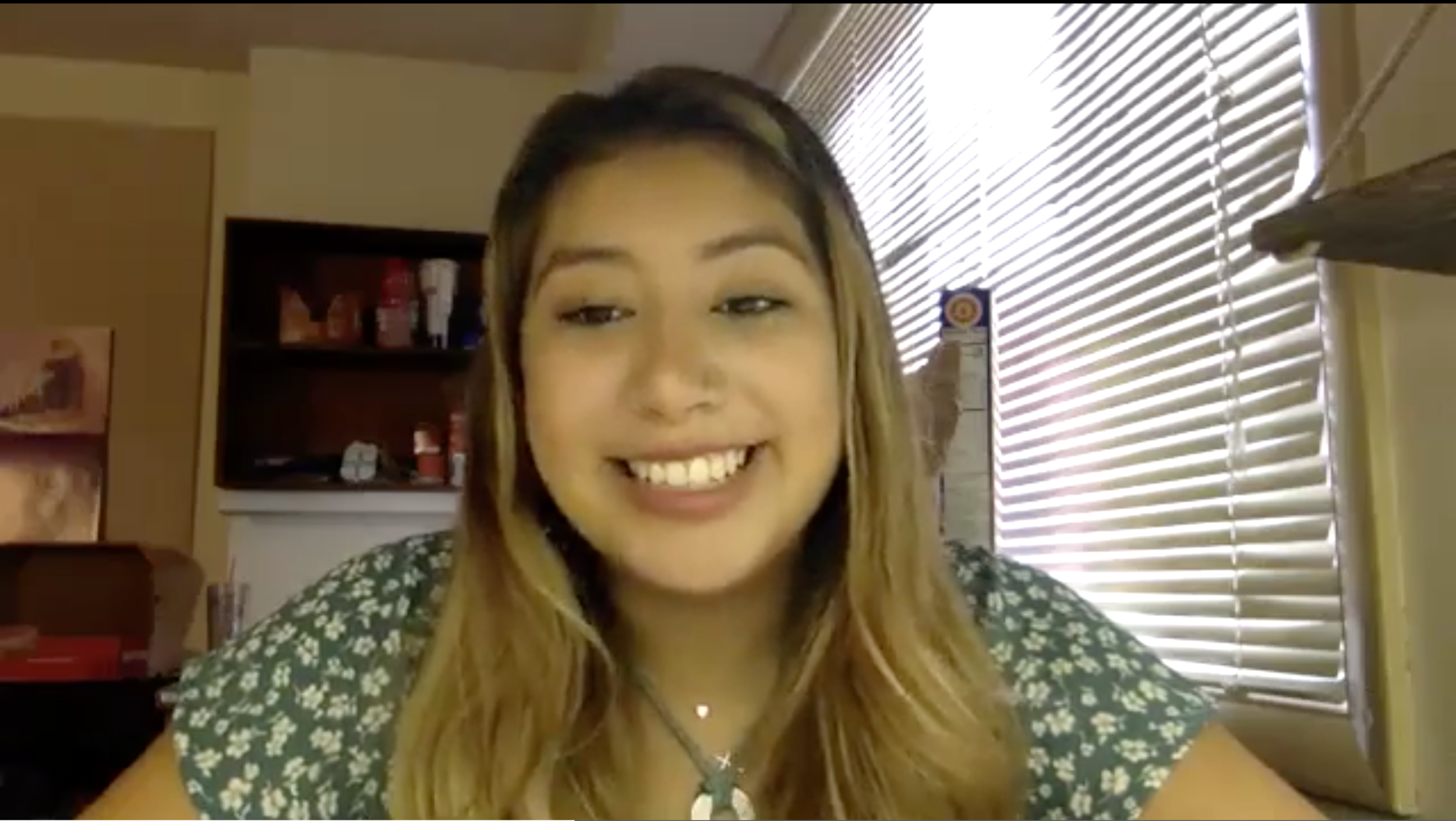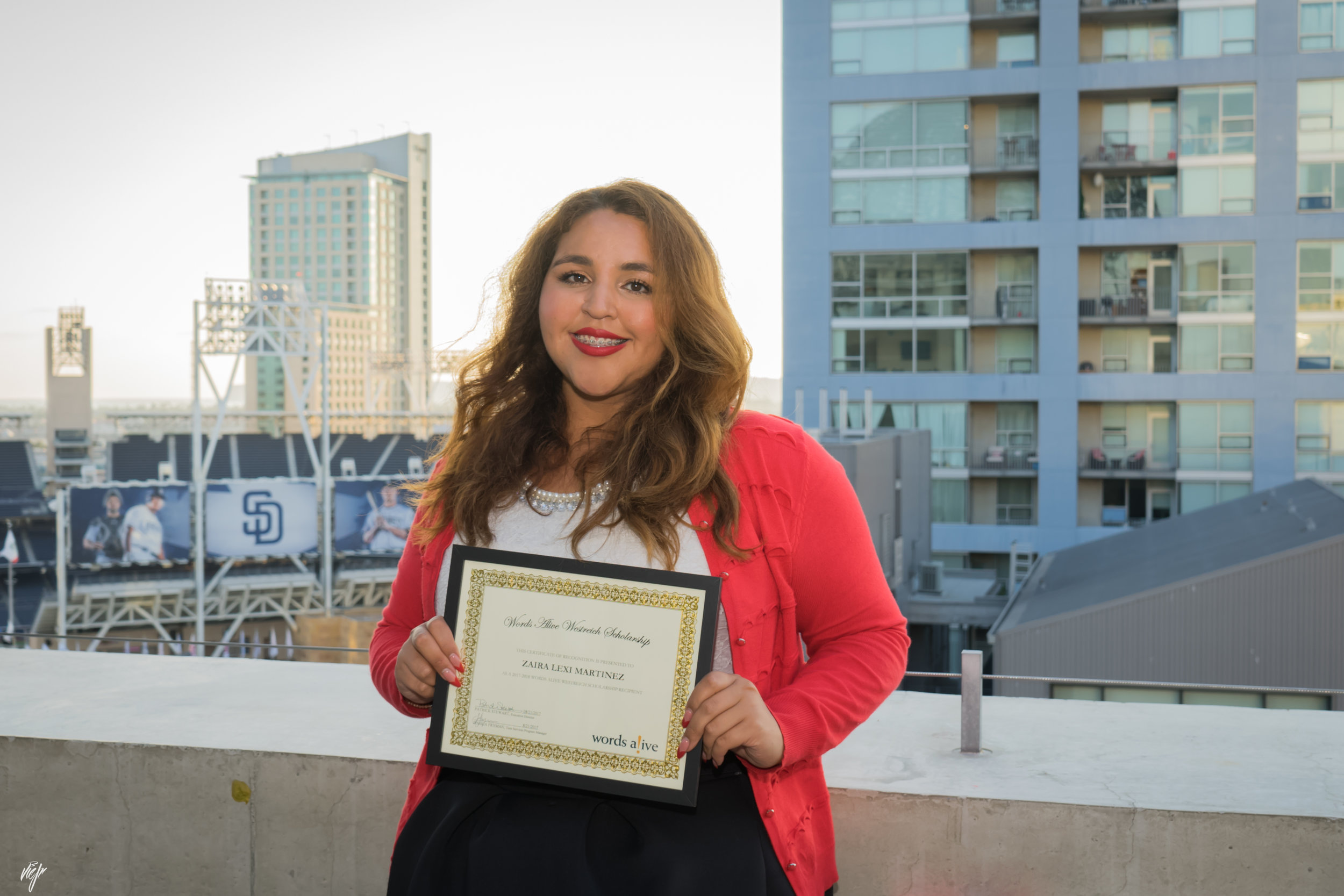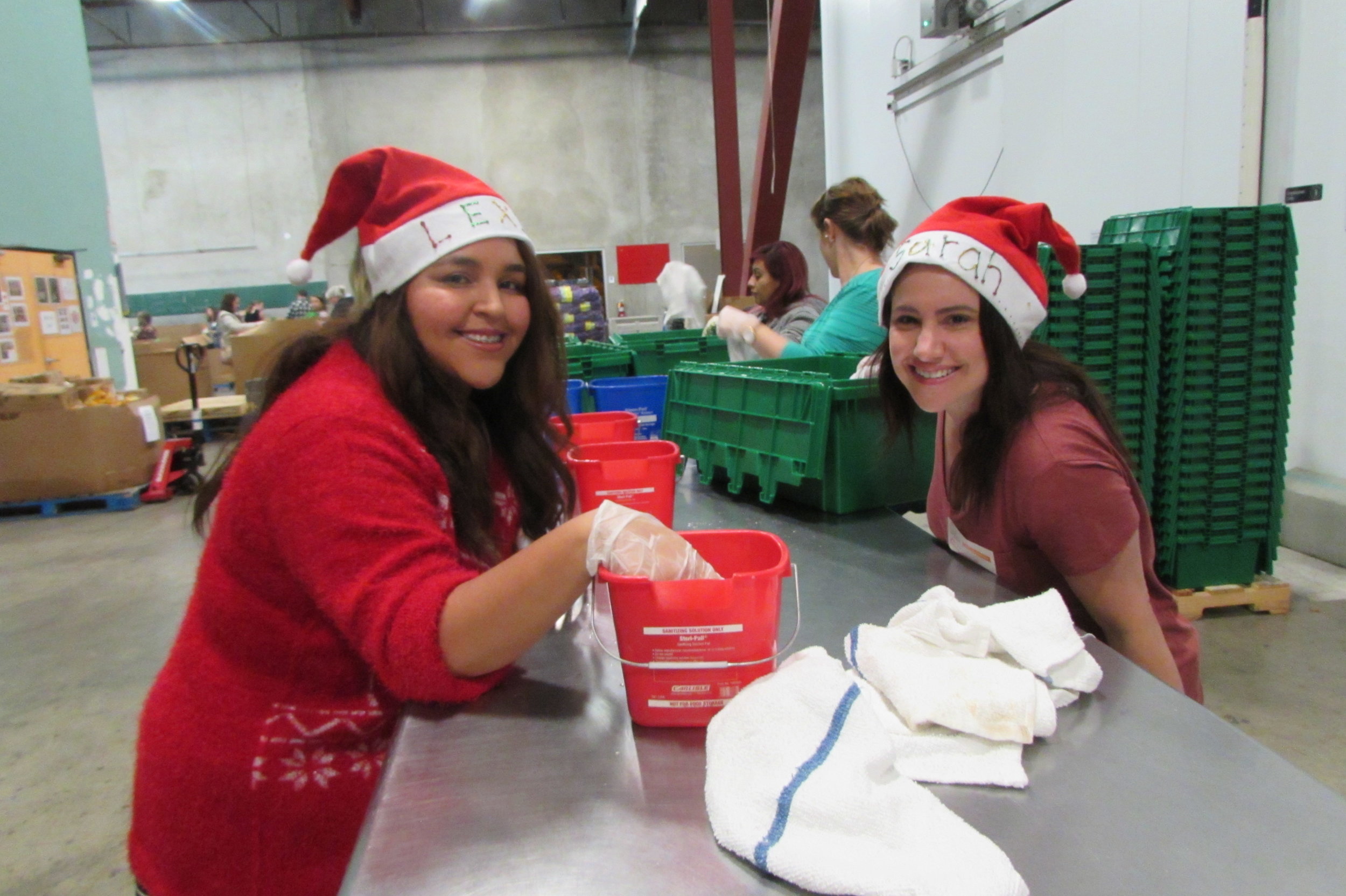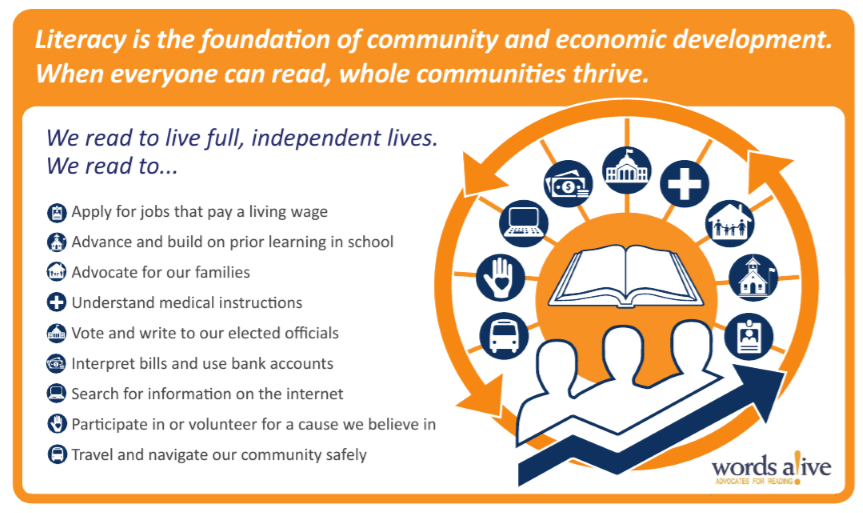We are so excited to announce the latest addition to the Words Alive team: our new Engagement Director, Alyssa Broda! Read on to learn more about Alyssa and what she’s bringing to Words Alive.
An image of Alyssa in front of a colorful mural that says “You Are Radiant! Yes, You.”
Alyssa is a dynamic fundraising professional with over 10 years of experience in the nonprofit sphere. She has helped fund the mission of NPR, PBS, American Cancer Society, American Lung Association, and more. Joining the Words Alive team in April 2021, Alyssa is working towards helping the organization reach new levels of engagement amongst donors and volunteers. Originally from Pennsylvania, Alyssa holds a Masters of Public Administration degree from Penn State University. On the weekends you can find her volunteering with rescue dogs and trying out new restaurants in SoCal.
Now, let’s hear from Alyssa herself!
What intrigued you about Words Alive? Why did you want to join the team?
“Literacy is an incredibly important social justice issue. I was intrigued by Words Alive’s community approach to solving this crisis in San Diego. The team is passionate, innovative, and so kind and welcoming that it was an easy decision!”
What are you most excited about in your new position?
“Learning about why people are drawn to Words Alive is the aspect of this role that will be the best part of my job. Every donor, volunteer, and partner comes with their own story about why this organization means so much to them. I get to spend my time learning about how Words Alive has changed their lives, and it is always incredibly rewarding.”
What is your relationship with literacy and learning?
“I am a lifelong learner and always curious about people. I’m lucky that my reading skills allowed me to expand my world bigger and bigger each year. Part of my self-care is reading because it allows my mind to wander. Literacy is my foundation for being a well-rounded and healthy individual.”
What are you currently reading?
“Currently I am reading Detransition, Baby by Torrey Peters. I have a bad habit of avoiding novels – I only read about one a year and stick to my normal library of memoirs and nonfiction. But this is my attempt of building my novel repertoire!”
—
We are so excited to have Alyssa on our team! Currently, there are no employment opportunities at Words Alive, but we are ALWAYS recruiting for wonderful volunteers to support our students and families. Learn how to get involved here!








